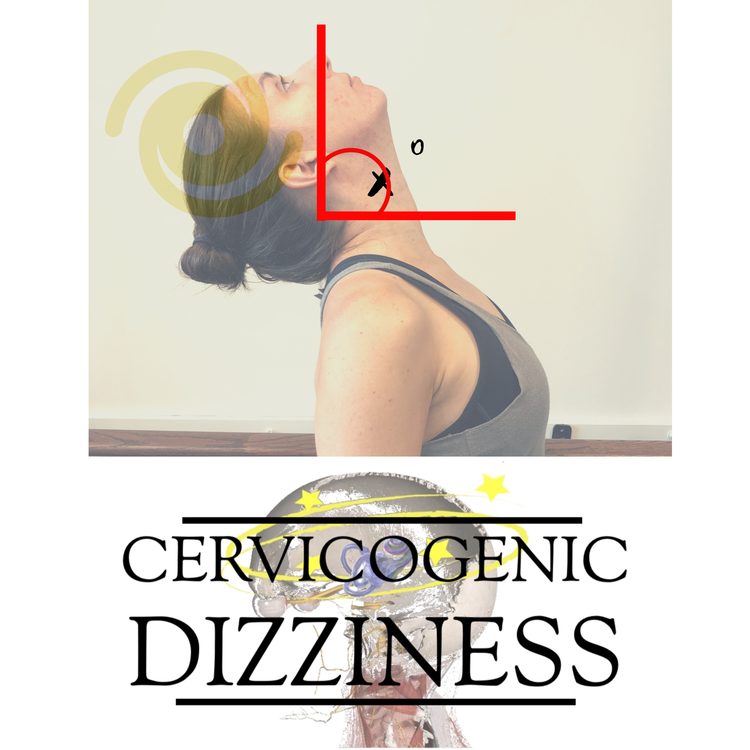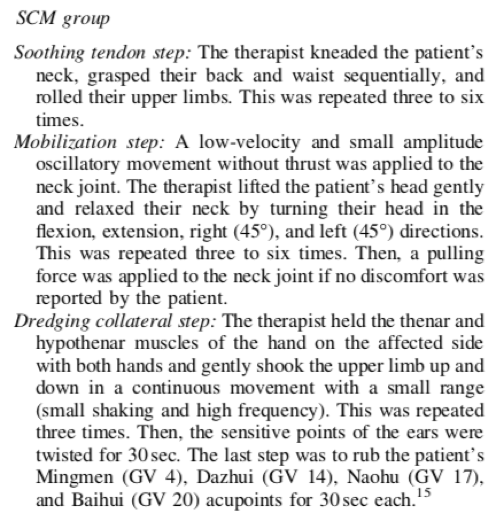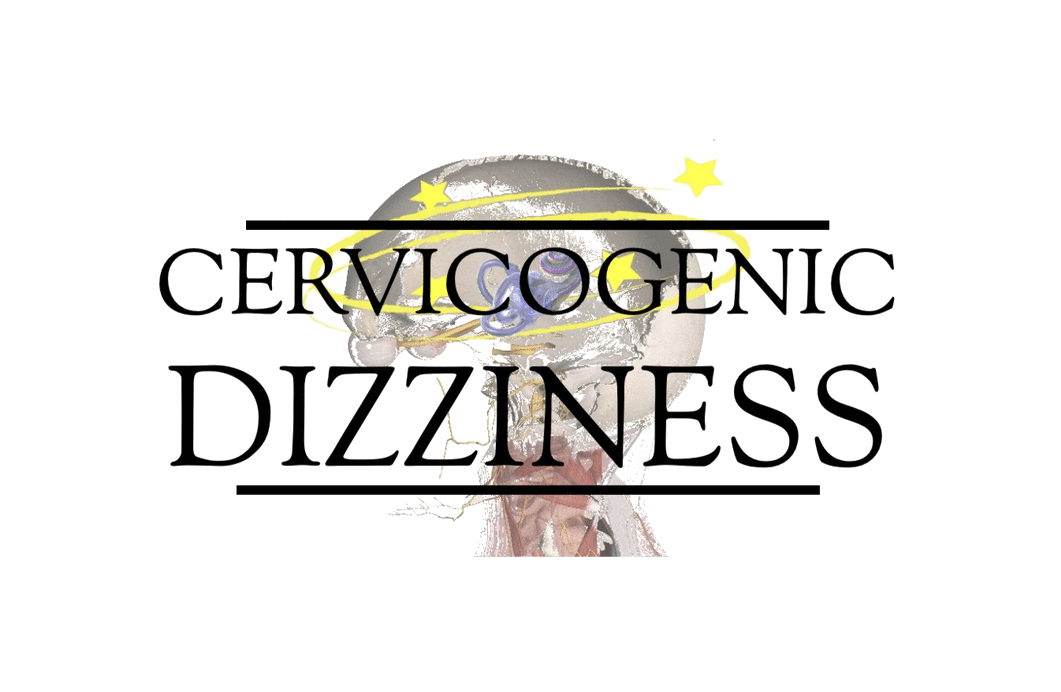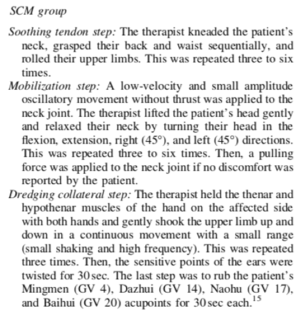
The following is the conclusion of a 2019 prospective, multi-center, randomized controlled clinical trial examining the difference between cervical mobilizations and traditional massage in 360 adult patients with the diagnosis of cervical vertigo.
“No differences in outcomes were detected between the SCM {Shi-Style Cervical Mobilizations) and TM {traditional massage} groups in terms of treatment of cervicogenic dizziness. Efficacy trials are required to determine whether the improvement observed for each treatment was causally related to the interventions.”
From a birds-eye viewpoint, you can take this conclusion that massage therapy is just as good as cervical mobilizations for the treatment of cervicogenic dizziness. Some may even take this piece of information further to state the massage therapists could be the ones treating cervicogenic dizziness.

Now, I don’t have a problem with massage therapists treating conditions! Heck, we have a very good colleague who we make referrals to and vice-versa in everyday clinical practice. But, I do want to make a point with this blog that a clinician, or even patient, should be aware of differences in descriptions in various pieces of literature, especially if coming from a randomized controlled clinical trial.
From a physical therapist perspective, the use of massage and cervical mobilizations are typically separate procedures. Hence, the reason we separate them in clinical trials to ascertain a difference or even a superiority, in techniques. I want to place descriptions of Yao et al 2019 below so the reader can read for themselves that interventions are described very differently throughout the musculoskeletal field.


You can see from the descriptions that there is not only some overlap of “soft tissue areas” and “mobilizations”, but even so multiple sites of the body and locations in the extremities were used to treat these patients with cervical vertigo. We agree that the treatment of cervical vertigo should not be so localized to one or two segments (which has been demonstrated to be effective in long term study), but blends mobilizations, soft tissue points and even sensorimotor training.
It is absolutely impossible to read the thousands, to millions, of research articles in the medical field each year. We don’t expect that on any healthcare provider!
But, if you’re interested in the diagnosis and management of Cervicogenic Dizziness, we have done that work for you! We constantly blog on new updates and have over 600 references in our book that inscribes the ink on an art form of manual therapy and sensorimotor training. If you have taken one of our courses, thank you! If not, check out our upcoming course page or contact us to host a class!
Cervicogenic Dizziness Course
You can learn more about the screening and treatment process of Cervicogenic Dizzinesss through Integrative Clinical Concepts, where the authors (husband–a manual therapist a wife—a vestibular specialist), teach a very unique course combining both the theory and practice of vestibular and manual principles in their 2-day course. Pertinent to this blog post, the 2nd day includes the “Physio Blend”, a multi-faceted physiotherapist approach to the management of Cervicogenic Dizziness, which includes treatments of the articular and non-articular system of manual therapy and the most updated sensorimotor exercise regimen.
If you would like to host a course for your staff (either a vestibular, neuro, sports or ortho clinic), please do not hesitate to contact me at harrisonvaughanpt@gmail.com for more information.
AUTHORS
Harrison N. Vaughan, PT, DPT, OCS, Dip. Osteopracic, FAAOMPT
Instructor: Cervicogenic Dizziness for Integrative Clinical Concepts
Danielle N. Vaughan, PT, DPT, Vestibular Specialist
Instructor: Cervicogenic Dizziness for Integrative Clinical Concepts



